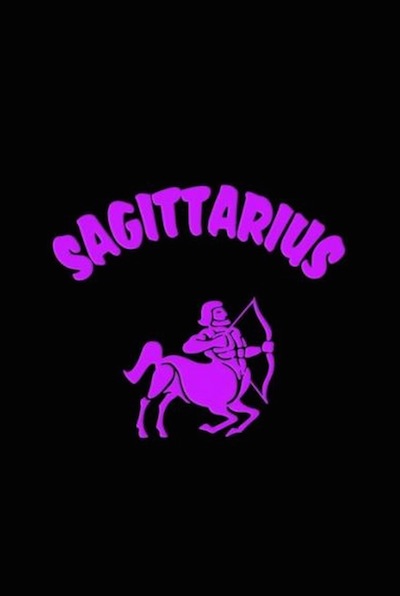Literary Astrology: Sagittarius
 We come full circle on the Literary Zodiac this month with Sagittarius. Represented by the archer, more specifically a mythical half-horse humanoid archer, Sagittarians (November 22–December 21) are generally good-natured, optimistic, and generous, despite the fact that they’re always given birthday-slash-holiday gifts. They’re known to be philosophical and honest to the point of bluntness. Loving freedom and prone to restlessness, they are travelers who can be both careless and irresponsible and, sometimes, superficial. Sounds a little to a lot like these five literary characters.
We come full circle on the Literary Zodiac this month with Sagittarius. Represented by the archer, more specifically a mythical half-horse humanoid archer, Sagittarians (November 22–December 21) are generally good-natured, optimistic, and generous, despite the fact that they’re always given birthday-slash-holiday gifts. They’re known to be philosophical and honest to the point of bluntness. Loving freedom and prone to restlessness, they are travelers who can be both careless and irresponsible and, sometimes, superficial. Sounds a little to a lot like these five literary characters.
Leopold Bloom (Ulysses, by James Joyce)
Like his Homeric inspiration, Leopold Bloom, Joyce’s everyman Odysseus, is a wanderer. Ulysses follows Bloom’s movements around the city of Dublin one June Day in 1904. Bloom has a robust appetite and curiosity about the world, even if his philosophizing is a bit bougie. A lover, not a fighter, he is an exceedingly good-natured man, allowing not even a cheating wife or an anti-Semitic slur to get him down—although we have to wonder if this has more to do with a tendency toward the superficial than some inborn equanimity. In his extreme Sagittarian, shall we say, openness, he tends to reveal a little too much about (and of) himself.
Pangloss (Candide, by Voltaire)
Voltaire’s naive protagonist could be Sagittarian, but it’s his mentor, Pangloss, who delivers the very definition of optimistic philosophy: the belief that ours is “the best of all possible worlds.” Pangloss clings to this positivity through syphilis, a shipwreck, an earthquake, his own hanging, and a chain gang. And nothing is quite as irresponsible as watching your friend drown because that’s what the bay was made for.
Tom Sawyer (The Adventures of Tom Sawyer and Huckleberry Finn, by Mark Twain)
Unlike his lower-class friend, Tom Sawyer has been raised in a comfortable, middle-class home, where all he wants for is adventure, which he will get by hook or by crook. What else could he know but optimism? On the negative side, Tom takes his privilege for granted, resulting in pretty careless, if not downright cruel, treatment of those around him (Aunt Polly, Aunt Sally, Becky, and most notably Jim).
Thomas Balfour (The Luminaries, by Eleanor Catton)
The Zodiac is a central motif of Catton’s Man Booker Prize–winning novel, where astrological signs characterize twelve principal characters. Thomas Balfour’s sign is Sagittarius, and Catton does a faithful job in sketching him as an Archer. Once a “restless boy,” Balfour is now a shipping agent and has come to this corner of New Zealand as part of an 1860s gold rush. He has a “relaxed sense of entitlement that comes when a lifelong optimism has been ratified by success” and a “generosity of spirit,” though in comparison to a more cultivated associate, he’s described as “blunt as a doorstop.” Ptolemy would approve.
Augustus Waters (The Fault in Our Stars, by John Green)
Here’s a sentence I never thought I’d write: Unflagging optimism in the face of terminal cancer is sexy, which is why YA readers can’t get enough of Augustus Waters, honorary Sagittarius. While Isaac and Hazel might bitch and moan (for good reason and mostly with a sense of humor), Gus remains unwaveringly upbeat, resolute that he and Hazel will travel to Amsterdam to meet her favorite author. This blind optimism does not produce results as expected, but in the end, Gus’s is a harsh but lovely emotional honesty. At times irresponsible, he does nothing, however, without care.
Who are your bets for literary Sagittarians?